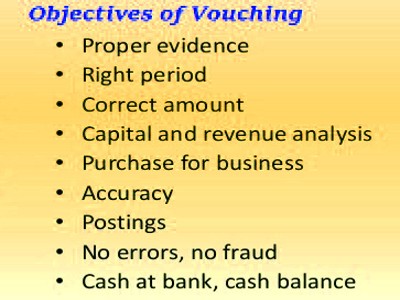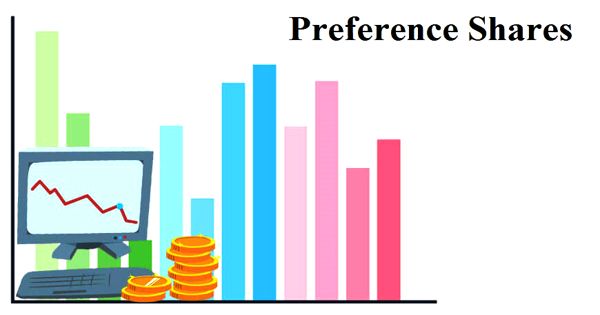Objectives of Vouching
Main objective of vouching is to find out the regularity or irregularity of transactions, frauds, and errors. It means to prove an entry in the accounting record with documentary evidence as well as to see that transaction has been properly authorized and recorded in the books of entry. Regularity means maintaining a record and performing the work complies with the rules, regulation, and law. But irregularity means doing the work crossing to the line of rules, regulation, and laws.

Some of the major objectives of vouching are given below:
- Proper Evidence
The purpose vouching is to note that proper evidence is available for every entry. The signatures, initials and rubber stamp are evidence that the document has been authorized and checked.
- Detect Errors and Frauds
All transactions are to be supported by evidence. Each document should be proved by an authorized authority. With the help of vouching, we can detect errors and frauds by verifying each transaction. Planned fraud can be detected through vouching. The errors are the result of carelessness or overwork. The fraud can be committed due to matching of minds of employees and customer.
- Truth of Account
Each and every transaction is checked and ratified on the basis of the support document. So, we can easily know the truth of the account. The adjustments in books are made on the basis of current year record of transactions. The vouching is useful to record only correct amounts in the books of accounts.
- Find the Unrecorded Transactions
Each and every transaction is checked and ratified on the basis of the document. Vouching helps to find out the unrecorded or missing transactions. If any voucher is found unrecorded, an auditor can suggest recording such transactions. The result is that he can check whether cashbook is correct or not.
- All the Transactions are Authorized
If the transactions are made on the consent of concerned authority, such transactions are known as authorized transactions. If transactions are not authorized, such transactions can be fictitious transactions. So, such fictitious transactions can be found with the help of vouching.
- Only the Business Transactions are Recorded
Sometimes, transactions are performed for individual purpose but payment is made out of business. Such transactions should not be recorded in the account of the business. If such transactions are recorded, we can find it with the help of vouching. To know the real profit or loss of business, such transactions are to be separated. The private purchase cannot be recorded as a business due to vouching.
Information Source:
















